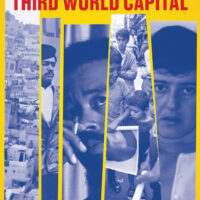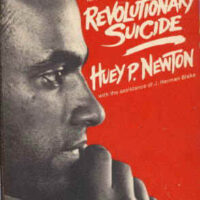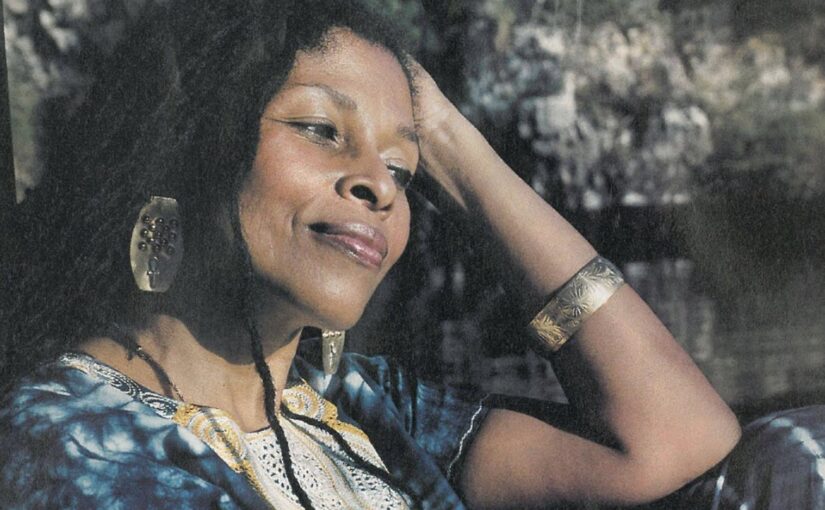The following book review first appeared in the Morning Star on 1 September, 2014. It is followed by a selection of important quotes from the book.
Assata Shakur’s autobiography – first published in 1988 and newly republished this year by Zed Books – has lost none of its relevance. It remains an essential text for understanding both the prison-industrial complex and the state of race relations in the US, as well as providing a profound insight into the successes and failures of the Black Power movement of the late 1960s and 1970s.
Born in 1947, Assata Shakur (then JoAnne Deborah Byron) grew up between North Carolina and New York, experiencing the intense racism that prevailed – and prevails – both sides of the Mason-Dixon line. As a black, working class female, she became acutely aware of the special oppression she and others like her faced. As a college student, she came across activists – especially students from newly-liberated Africa – who challenged her anti-communist prejudices and her internalised stereotypes, and encouraged her to get involved in the struggle for black power and against capitalism and imperialism. This led to her membership of the Black Panther Party and, later, the Black Liberation Army.
The larger part of the book is devoted to documenting Assata’s experiences with the ‘justice’ system, in courts and prisons, between her arrest in 1971 and her escape eight years later. Few readers would fail to be shocked at the extent to which this human being, whose real ‘crime’ in the eyes of the state was to be a loud campaigner for justice and equality, was tortured and abused in prison – often at the hands of openly fascistic prison officers.
Her account also serves as a crucial reminder that there remain many political prisoners in the US, languishing behind bars for decades on trumped-up charges. International pressure must be maintained and intensified until Mumia Abu-Jamal, Sundiata Acoli, Leonard Peltier, Oscar López Rivera, Kenny ‘Zulu’ Whitmore, Albert Woodfox and all political prisoners are freed. Furthermore we must maintain the fight against an phenomenally unjust prison system which disproportionately targets poor and non-white people (and this is not restricted to the US – a recent study showed that black people in Britain are seven times more likely than their white counterparts to be imprisoned).
Assata’s profound and thought-provoking reflections on the decline of the Black Power movement deserve to be studied and discussed, as they could help illuminate a path for the current generation of organisers and activists. Aside from the objective factor (the FBI’s large-scale covert assault on the Panthers and others), Assata gives a great deal of attention to the subjective factor, in particular an element of adventurism, sectarianism, amateurishness, failure to consistently raise levels of political consciousness, and alienation from the masses.
Assata’s continuing relevance is not lost on the FBI, which last year added her to its list of Most Wanted Terrorists (she is the first female to enjoy this honour – good to see US imperialism doing its bit for gender equality). Thankfully, she is safely in exile in Cuba, a country she describes as “one of the largest, most resistant and most courageous palenques (maroon camps) that has ever existed on the face of this planet.”
‘Assata: An Autobiography’ is essential reading.
Quotes
On the hypocrisy of the power structure
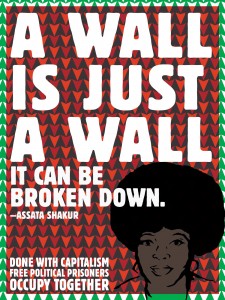 They call us thieves and bandits. They say we steal. But it was not we who stole millions of Black people from the continent of Africa. We were robbed of our language, of our Gods, of our culture, of our human dignity, of our labor, and of our lives. They call us thieves, yet it is not we who rip off billions of dollars every year through tax evasions, illegal price fixing, embezzlement, consumer fraud, bribes, kickbacks, and swindles. They call us bandits, yet every time most Black people pick up our paychecks we are being robbed. Every time we walk into a store in our neighborhood we are being held up. And every time we pay our rent the landlord sticks a gun into our ribs.
They call us thieves and bandits. They say we steal. But it was not we who stole millions of Black people from the continent of Africa. We were robbed of our language, of our Gods, of our culture, of our human dignity, of our labor, and of our lives. They call us thieves, yet it is not we who rip off billions of dollars every year through tax evasions, illegal price fixing, embezzlement, consumer fraud, bribes, kickbacks, and swindles. They call us bandits, yet every time most Black people pick up our paychecks we are being robbed. Every time we walk into a store in our neighborhood we are being held up. And every time we pay our rent the landlord sticks a gun into our ribs.
They call us thieves, but we did not rob and murder millions of Indians by ripping off their homeland, then call ourselves pioneers. They call us bandits, but it is not we who are robbing Africa, Asia, and Latin America of their natural resources and freedom while the people who live there are sick and starving. The rulers of this country and their flunkies have committed some of the most brutal, vicious crimes in history. They are the bandits. They are the murderers. And they should be treated as such.
On the prison-industrial complex
[The prison-industrial complex] explained why jails and prisons all over the country are filled to the brin with Black and Third World people, why so many Black people can’t find a job on the streets and are forced to survive the best way they know how. Once you’re inprison, there are plenty of jobs, and, if you don’t want to work, they beat you up and throw you in the hole. If every state had to pay workers to do the jobs prisoners are forced to do, the salaries would amount to billions… Prisons are a profitable business. They are a way of legally perpetuating slavery. In every state more and more prisons are being built and even more are on the drawing board. Who are they for? They certainly aren’t planning to put white people in them. Prisons are part of this government’s genocidal war against Black and Third World people.
On liberalism
The Upper West Side, as the neighborhood was called, was supposed to be a “liberal” stronghold. I have never really understood exactly what a “liberal” is, though, since i have heard “liberals” express every conceivable opinion on every conceivable subject. As far as i can tell, you have the extreme right, who are fascist racist capitalist dogs like Ronald Reagan, who come right out and let you know where they’re coming from. And on the opposite end, you have the left, who are supposed to be committed to justice, equality, and human rights. And somewhere between those two points is the liberal. As far as i’m concerned, “liberal” is die most meaningless word in the dictionary. History has shown me that as long as some white middle-class people can live high on the hog, take vacations to Europe, send their children to private schools, and reap the benefits of their white skin privilege, then they are “liberals.” But when times get hard and money gets tight, they pull off that liberal mask and you think you’re talking to Adolf Hitler. They feel sorry for the so-called underprivileged just as long as they can maintain their own privileges.
On overcoming anti-communist prejudice
I continued saying the first thing that came into my head [in a debate over Vietnam]: that the u.s. was fighting communists because they wanted to take over everything. When someone asked me what communism was, i opened my mouth to answer, then realized i didn’t have the faintest idea. My image of a communist came from a cartoon. It was a spy with a black trench coat and a black hat pulled down over his face, slinking around corners. In school, we were taught that communists worked in salt mines, that they weren’t free, that everybody wore the same clothes, and that no one owned anything. The Africans rolled with laughter.
I felt like a bona fide clown. One of them explained that communism was a political-economic system, but i wasn’t listening. I was just digging on myself. I had been hooping and hollering about something that i didn’t even understand. I knew i didn’t know what the hell communism was, and yet i’d been dead set against it. Just like when you’re a little kid and they get you to believe in the bogeyman. You don’t know what the hell the bogeyman is, but you hate him and you’re scared of him
I never forgot that day. We’re taught at such an early age to be against the communists, yet most of us don’t have the faintest idea what communism is. Only a fool lets somebody else tell him who his enemy is… It’s got to be one of the most basic principles of living: always decide who your enemies are for yourself, and never let your enemies choose your enemies for you.
On Marx and Lenin
Usually, after a disagreement, they [my comrades] suggested i read this or that, often Marx, Lenin, or Engels. I preferred Ho Chi Minh, Kim Il Sung, Che, or Fidel, but i ended up having to get into Marx and Lenin just to understand a lot of the speeches and stuff Huey Newton was putting out. It wasn’t easy reading, but i was glad i did it. It opened up my horizons a hell of a lot. I didn’t relate to them as the great white fathers or like some kind of gods, like some of the white revolutionaries did. As far as i was concerned, they were two dudes who had made contributions to revolutionary struggle too great to be ignored.
On capitalism and communism
I wasn’t against communism, but i can’t say i was for it either. At first, i viewed it suspiciously, as some kind of white man’s concoction, until i read works by African revolutionaries and studied the African liberation movements. Revolutionaries in Africa understood that the question of African liberation was not just a question of race, that even if they managed to get rid of the white colonialists, if they didn’t rid themselves of the capitalistic economic structure, the white colonialists would simply be replaced by Black neocolonialists. There was not a single liberation movement in Africa that was not fighting for socialism. In fact, there was not a single liberation movement in the whole world that was fighting for capitalism. The whole thing boiled down to a simple equation: anything that has any kind of value is made, mined, grown, produced, and processed by working people. So why shouldn’t working people collectively own that wealth? Why shouldn’t working people own and control their own resources? Capitalism meant that rich businessmen owned the wealth, while socialism meant that the people who made the wealth owned it.
I got into heated arguments with sisters or brothers who claimed that the oppression of Black people was only a question of race. I argued that there were Black oppressors as well as white ones. That’s why you’ve got Blacks who support Nixon or Reagan or other conservatives. Black folks with money have always tended to support candidates who they believed would protect their financial interests. As far as i was concerned, it didn’t take too much brains to figure out that Black people are oppressed because of class as well as race, because we are poor and because we are Black. It would burn me up every time somebody talked about Black people climbing the ladder of success. Anytime you’re talking about a ladder, you’re talking about a top and a bottom, an upper class and a lower class, a rich class and a poor class. As long as you’ve got a system with a top and a bottom, Black people are always going to wind up at the bottom, because we’re the easiest to discriminate against. That’s why i couldn’t see fighting within the system. Both the democratic party and the republican party are controlled by millionaires. They are interested in holding on to their power, while i was interested in taking it away. They were interested in supporting fascist dictatorships in South and Central America, while i wanted to see them overthrown. They were interested in supporting racist, fascist regimes in Africa while i was interested in seeing them overthrown. They were interested in defeating the Viet Cong and i was interested in seeing them win their liberation. A poster of the massacre at My Lai, picturing women and children lying clumped together in a heap, their bodies riddled with bullets, hung on my wall as a daily reminder of the brutality in the world.
On left arrogance
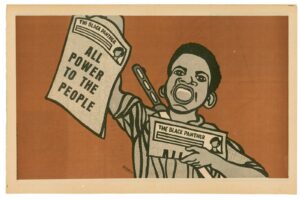 I had begun to think of myself as a socialist, but i could not in any way see myself joining any of the socialist groups i came in contact with. I loved to listen to them, learn from them, and argue with them, but there was no way in the world i could see myself becoming a member. For one thing, i could not stand the condescending, paternalistic attitudes of some of the white people in those groups. Some of the older members thought that because they had been in the struggle for socialism for a long time, they knew all the answers to the problems of Black people and all the aspects of the Black Liberation struggle. I couldn’t relate to the idea of the great white father on earth any more than i could relate to the great white father up in the sky. I was willing and ready to learn everything i could from them, but i damn sure was not ready to accept them as leaders of the Black Liberation struggle. A few thought that they had a monopoly on Marx and acted like the only experts in the world on socialism came from Europe. In many instances they downgraded the theoretical and practical contributions of Third World revolutionaries like Fidel Castro, Ho Chi Minh, Augustino Neto, and other leaders of liberation movements in the Third World.
I had begun to think of myself as a socialist, but i could not in any way see myself joining any of the socialist groups i came in contact with. I loved to listen to them, learn from them, and argue with them, but there was no way in the world i could see myself becoming a member. For one thing, i could not stand the condescending, paternalistic attitudes of some of the white people in those groups. Some of the older members thought that because they had been in the struggle for socialism for a long time, they knew all the answers to the problems of Black people and all the aspects of the Black Liberation struggle. I couldn’t relate to the idea of the great white father on earth any more than i could relate to the great white father up in the sky. I was willing and ready to learn everything i could from them, but i damn sure was not ready to accept them as leaders of the Black Liberation struggle. A few thought that they had a monopoly on Marx and acted like the only experts in the world on socialism came from Europe. In many instances they downgraded the theoretical and practical contributions of Third World revolutionaries like Fidel Castro, Ho Chi Minh, Augustino Neto, and other leaders of liberation movements in the Third World.
Another thing that went against my grain was the arrogance and dogmatism i encountered in some of these groups.
A member of one group told me that if i was really concerned about the liberation of Black people i should quit school and get a job in a factory, that if i wanted to get rid of the system i would have to work at a factory and organize the workers. “When i asked him why he wasn’t working in a factory and organizing the workers, he told me that he was staying in school in order to organize the students. I told him i was working to organize the students too and that i felt perfectly certain that the workers could organize themselves without any college students doing it for them. Some of these groups would come up with abstract, intellectual theories, totally devoid of practical application, and swear they had the answers to the problems of the world. They attacked the Vietnamese for participating in the Paris peace talks, claiming that by negotiating the Viet Cong were selling out to the u.s. I think they got insulted when i asked them how a group of flabby white boys who couldn’t fight their way out of a paper bag had the nerve to think they could tell the Vietnamese people how to run their show.
Arrogance was one of the key factors that kept the white left so factionalized. I felt that instead of fighting together against a common enemy, they wasted time quarreling with each other about who had the right line.
On white supremacy
Most of our fights [as kids] started over petty disputes like stepped-on shoes, flying spitballs, and the contested ownership of pens and pencils. But behind our fights, self-hatred was clearly visible… We would call each other “jungle bunnies” and “bush boogies.” We would talk about each other’s ugly, big lips and flat noses. We would call each other pickaninnies and nappy-haired soand-so’s…
Black made any insult worse. When you called somebody a “bastard,” that was bad. But when you called somebody a “Black bastard,” now that was terrible. In fact, when i was growing up, being called “Black,” period, was grounds for fighting.
“Who you callin’ Black?” we would say. We had never heard the words “Black is beautiful” and the idea had never occurred to most of us…
We had been completely brainwashed and we didn’t even know it. We accepted white value systems and white standards of beauty and, at times, we accepted the white man’s view of ourselves. We had never been exposed to any other point of view or any other standard of beauty. From when i was a tot, i can remember Black people saying, “Niggas ain’t shit.” “You know how lazy niggas are.” “Give a nigga an inch and he’ll take a mile.” Everybody knew what “niggas” like to do after they eat: sleep. Everybody knew that “niggas” couldn’t be on time; that’s why there was c.p.t. (colored people’s time). “Niggas don’t take care of nothin’.” “Niggas don’t stick together.” The list could go on and on. To varying degrees we accepted these statements as true. And, to varying degrees, we each made them true within ourselves because we believed them.
On black consciousness
In a country that is trying to completely negate the image of Black people, that constantly tells us we are nothing, our culture is nothing, i felt and still feel that we have got to constantly make positive statements about ourselves. Our desire to be free has got to manifest itself in everything we are and do. We have accepted too much of a negative lifestyle and a negative culture and have to consciously act to rid ourselves of that negative influence. Maybe in another time, when everybody is equal and free, it won’t matter how anybody wears their hair or dresses or looks. Then there won’t be any oppressors to mimic or avoid mimicking. But right now i think it’s important for us to look and feel like strong, proud Black men and women who are looking toward Africa for guidance.
On Abraham Lincoln
Little did i know that Lincoln was an archracist who had openly expressed his disdain for Black people. He was of the opinion that Black people should be forcibly deported to Africa or anywhere else. We had been taught that the Civil War was fought to free the slaves, and it was not until i was in college that i learned that the Civil War was fought for economic reasons. The fact that “official” slavery was abolished was only incidental. Northern industrialists were fighting to control the economy. Before the Civil War, the northern industrial economy was largely dependent on southern cotton. The slave economy of the South was a threat to northern capitalism. What if the slaveholders of the South decided to set up factories and process the cotton themselves? Northern capitalists could not possibly compete with slave labor, and their capitalist economy would be destroyed. To ensure that this didn’t happen, the North went to war.
On negative gender relations in the black community
Back then, when i was growing up, boys gang-banging or gang-raping a girl was a pretty common thing… If a girl was caught on the wrong side of a park or in the wrong territory or on the wrong street, she was a target. It was a common thing back then for boys to downgrade girls and cuss at them in the street. It was common for them to go to bed with girls and talk about them like dogs the next day. It was common for boys to deny they were the fathers of their babies. And it was common for boys to beat girls up and knock them around. And then the girls would get hard too.
“If the nigga ain’t got no money, I don’t want to be bothered.”
“If the nigga ain’t got no car, then later for him.”
The more i watched how boys and girls behaved, the more i read and the more i thought about it, the more convinced i became that this behavior could be traced directly back to the plantation, when slaves were encouraged to take the misery of their lives out on each other instead of on the master. The slavemasters taught us we were ugly, less than human, unintelligent, and many of us believed it. Black people became breeding animals: studs and mares. A Black woman was fair game for anyone at any time: the master or a visiting guest or any redneck who desired her. The slavemaster would order her to have six with this stud, seven with that stud, for the purpose of increasing his stock. She was considered less than a woman. She was a cross between a whore and a workhorse. Black men internalized the white man’s opinion of Black women. And, if you ask me, a lot of us still act like we’re back on the plantation with massa pulling the strings.
On partying and hedonism
This party is a lost cause. I get my beach towel and my book and ease on down the beach a little piece. Looking out at the ocean, i wonder how many of our people lie buried there, slaves of another era. I’m not quite sure what freedom is, but i know damn well what it ain’t. How have we gotten so silly, i wonder. I get back off into James Baldwin… Me and James Baldwin are communicating. His fiction is more real than this reality.
On political evolution
 No movement can survive unless it is constantly growing and changing with the times. If it isn’t growing, it’s stagnant, and without the support of the people, no movement for liberation can exist, no matter how correct its analysis of the situation is. That’s why political work and organizing are so important. Unless you are addressing the issues people are concerned about and contributing positive direction, they’ll never support you. The first thing the enemy tries to do is isolate revolutionaries from the masses of people, making us horrible and hideous monsters so that our people will hate us.
No movement can survive unless it is constantly growing and changing with the times. If it isn’t growing, it’s stagnant, and without the support of the people, no movement for liberation can exist, no matter how correct its analysis of the situation is. That’s why political work and organizing are so important. Unless you are addressing the issues people are concerned about and contributing positive direction, they’ll never support you. The first thing the enemy tries to do is isolate revolutionaries from the masses of people, making us horrible and hideous monsters so that our people will hate us.
On unity
Some of the laws of revolution are so simple they seem impossible. People think that in order for something to work, it has to be complicated, but a lot of times the opposite is true. We usually reach success by putting the simple truths that we know into practice. The basis of any struggle is people coming together to fight against a common enemy… One of the most important things the Party did was to make it really clear who the enemy was: not the white people, but the capitalistic, imperialistic oppressors. They took the Black liberation struggle out of a national context and put it in an international context. The Party supported revolutionary struggles and governments all over the world and insisted the u.s. get out of Africa, out of Asia, out of Latin America, and out of the ghetto too.
On problems in the black liberation movement
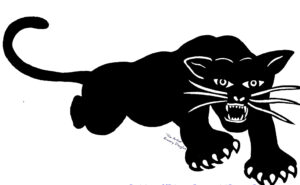 One of the basic laws of people’s struggle was to retreat when the enemy is strong and to attack when the enemy is weak. As far as I was concerned, defending the office was suicidal. The pigs had manpower, initiative, surprise, and gunpowder. We would just be sitting ducks. I felt that the Party was dealing from an emotional rather than a rational basis. Just because you believe in self-defense doesn’t mean you let yourself be sucked into defending yourself on the enemy’s terms. One of the Party’s major weaknesses, i thought, was the failure to clearly differentiate between aboveground political struggle and underground, clandestine military struggle.
One of the basic laws of people’s struggle was to retreat when the enemy is strong and to attack when the enemy is weak. As far as I was concerned, defending the office was suicidal. The pigs had manpower, initiative, surprise, and gunpowder. We would just be sitting ducks. I felt that the Party was dealing from an emotional rather than a rational basis. Just because you believe in self-defense doesn’t mean you let yourself be sucked into defending yourself on the enemy’s terms. One of the Party’s major weaknesses, i thought, was the failure to clearly differentiate between aboveground political struggle and underground, clandestine military struggle.
An aboveground political organization can’t wage guerrilla war anymore than an underground army can do aboveground political work. Although the two must work together, they must have completely separate structures, and any links between the two must remain secret. Educating the people about the necessity for self-defense and for armed struggle was one thing. But maintaining a policy of defending Party offices against insurmountable odds was another. Of course, if the police just came in and started shooting, defending yourself made sense. But the point is to try and prevent that from happening…
On the whole, we were weak, inexperienced, disorganized, and seriously lacking in training. But the biggest problem was one of political development. There were sisters and brothers who had been so victimized by amerika that they were willing to fight to the death against their oppressors. They were intelligent, courageous and dedicated, willing to make any sacrifice. But we were to find out quickly that courage and dedication were not enough. To win any struggle for liberation, you have to have the way as well as the will, an overall ideology and strategy that stem from a scientific analysis of history and present conditions.
Some of the groups thought they could just pick up arms and struggle and that, somehow, people would see what they were doing and begin to struggle themselves. They wanted to engage in a do-or-die battle with the power structure in amerika, even though they were weak and ill prepared for such a fight. But the most important factor is that armed struggle, by itself, can never bring about a revolution. Revolutionary war is a people’s war. And no people’s war can be won without the support of the masses of people. Armed struggle can never be successful by itself; it must be part of an overall strategy for winning, and the strategy must be political as well as military…
Revolutionary war is protracted warfare. It is impossible for us to win quickly. To win we have got to wear down our oppressors, little by little, and, at the same time, strengthen our forces, slowly but surely. I understood some of my more impatient sisters and brothers. I knew that it was tempting to substitute military for political struggle, especially since all of our aboveground organizations were under vicious attack by the FBI, the CIA, and the local police agencies. All of us who saw our leaders murdered, our people shot down in cold blood, felt a need, a desire to fight back. One of the hardest lessons we had to learn is that revolutionary struggle is scientific rather than emotional. I’m not saying that we shouldn’t feel anything, but decisions can’t be based on love or on anger. They have to be based on the objective conditions and on what is the rational, unemotional thing to do.
On COINTELPRO
Nobody back then had ever heard of the counterintelligence program (COINTELPRO) set up by the FBI. Nobody could possibly have known that the FBI had sent a phony letter to Eldridge Cleaver in Algiers, “signed” by the Panther 21, criticizing Huey Newton’s leadership. No one could have known that the FBI had sent a letter to Huey’s brother saying the New York Panthers were plotting to kill him. No one could have known that the FBI’s COINTELPRO was attempting to destroy the Black Panther Party in particular and the Black Liberation Movement in general, using divide-and-conquer tactics. The FBI’s COINTEL program consisted of turning members of organizations against each other, pitting one Black organization against another. Huey ended up suspending Cet and Dhoruba from the Party, branded them as “enemies of the people,” and caused them to go into hiding, in fear for their very lives. No one had the slightest idea that this whole scenario was carefully manipulated and orchestrated by the FBI.
On anti-religious arrogance
After the resurgence of the Puerto Rican independence movement, Lolita Lebrón was visited by all kinds of people. Some were pseudorevolutionary robots who attacked her for her religious beliefs, telling her that to be a revolutionary she had to give up her belief in God. It apparently had never occurred to those fools that Lolita was more revolutionary than they could ever be, and that her religion had helped her to remain strong and committed all those years. I was infuriated by their crass, misguided arrogance.
On exposing oppression
Every day out in the street now, i remind myself that Black people in amerika are oppressed. It’s necessary that I do that. People get used to anything. The less you think about your oppression, the more your tolerance for it grows. After a while, people just think oppression is the normal state of things. But to become free, you have to be acutely aware of being a slave.
On nationalism and internationalism
It was also clear to me that without a truly internationalist component nationalism was reactionary. There was nothing revolutionary about nationalism by itself — Hitler and Mussolini were nationalists. Any community seriously concerned with its own freedom has to be concerned about other peoples’ freedom as well. The victory of oppressed people anywhere in the world is a victory for Black people. Each time one of imperialism’s tentacles is cut off we are closer to liberation. The struggle in South Africa is the most important battle of the century for Black people. The defeat of apartheid in South Africa will bring Africans all over the planet closer to liberation. Imperialism is an international system of exploitation, and, we, as revolutionaries, need to be internationalists to defeat it.
On life in Cuba
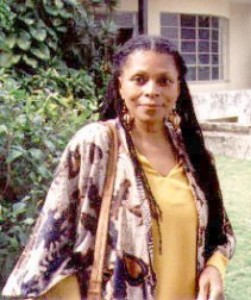 My neighbors ask me what the u.s. is like, and they accuse me of lying when i tell them about the hunger and cold and people sleeping in the streets. They refuse to believe me. How can that be in such a rich country? I tell them about drug addicts and child prostitutes, about crime in the streets. They accuse me of exaggerating: “We know capitalism is not a good system, but you don’t have to exaggerate. Are there really twelve-year-old drug addicts?” Even though they know about racism and the ku klux klan, about unemployment, such things are unreal to them. Cuba is a country of hope. Their reality is so different. I’m amazed at how much Cubans have accomplished in so short a time since the Revolution. There are new buildings everywhere — schools, apartment houses, clinics, hospitals, and day care centers. They are not like the skyscrapers going up in midtown Manhattan. There are no exclusive condominiums or luxury office buildings. The new buildings are for the people.
My neighbors ask me what the u.s. is like, and they accuse me of lying when i tell them about the hunger and cold and people sleeping in the streets. They refuse to believe me. How can that be in such a rich country? I tell them about drug addicts and child prostitutes, about crime in the streets. They accuse me of exaggerating: “We know capitalism is not a good system, but you don’t have to exaggerate. Are there really twelve-year-old drug addicts?” Even though they know about racism and the ku klux klan, about unemployment, such things are unreal to them. Cuba is a country of hope. Their reality is so different. I’m amazed at how much Cubans have accomplished in so short a time since the Revolution. There are new buildings everywhere — schools, apartment houses, clinics, hospitals, and day care centers. They are not like the skyscrapers going up in midtown Manhattan. There are no exclusive condominiums or luxury office buildings. The new buildings are for the people.
Medical care, dental care, and hospital visits are free. Schools at all educational levels are free. Rent is no more than about ten percent of salaries. There are no taxes — no income, city, federal, or state taxes. It is so strange to pay the price actually listed on products without any tax added. Movies, plays, concerts, and sports events all cost one or two pesos at the most. Museums are free.
On Saturdays and Sundays the streets are packed with people dressed up and ready to hang out. I was amazed to discover that such a small island has such a rich cultural life and is so lively, particularly when the u.s. press gives just the opposite picture…
I spent my first weeks in Havana walking and watching. Nowhere did I find a segregated neighborhood, but several people told me that where i was living had been all white before the Revolution. Just from casual observation it was obvious that race relations in Cuba were different from what they were in the u.s. Blacks and whites could be seen together everywhere — in cars, walking down streets. Kids of all races played together. It was definitely different. Whenever i met someone who spoke English i asked their opinion about the race situation.
“Racism is illegal in Cuba,” i was told. Many shook their heads and said, “Aqui no hay racismo.” “There is no racism here.” Although i heard the same response from everyone i remained skeptical and suspicious. I couldn’t believe it was possible to eliminate hundreds of years of racism just like that, in twenty-five years or so. To me, revolutions were not magical, and no magic wand could be waved to create changes overnight. I’d come to see revolution as a process. I eventually became convinced that the Cuban government was completely committed to eliminating all forms of racism. There were no racist institutions, structures, or organizations, and i understood how the Cuban economic system undermined rather than fed racism.
On tacit support for death and destruction
Too many people in the u.s. support death and destruction without being aware of it. They indirectly support the killing of people without ever having to look at the corpses. But in Cuba i could see the results of u.s. foreign policy: torture victims on crutches who came from other countries to Cuba for treatment, including Namibian children who had survived massacres, and evidence of the vicious aggression the u.s. government had committed against Cuba, including sabotage, and numerous assassination attempts against Fidel. I wondered how all those people in the states who tried to sound tough, saying that the u.s. should go in here, bomb there, take over this, attack that, would feel if they knew that they were indirectly responsible for babies being burned to death. I wondered how they would feel if they were forced to take moral responsibility for that. It sometimes seems that people in the states are so accustomed to watching death on “Eyewitness News,” watching people starve to death in Africa, being tortured to death in Latin America or shot down on Asian streets, that, somehow, for them, people across the ocean — people “up there” or “down there” or “over there” — are not real.
On the future
How much we had all gone through. Our fight had started on a slave ship years before we were born. Venceremos, my favorite word in Spanish, crossed my mind. Ten million people had stood up to the monster. Ten million people only ninety miles away. We were here together in their land, my small little family, holding each other after so long. There was no doubt about it, our people would one day be free. The cowboys and bandits didn’t own the world.

